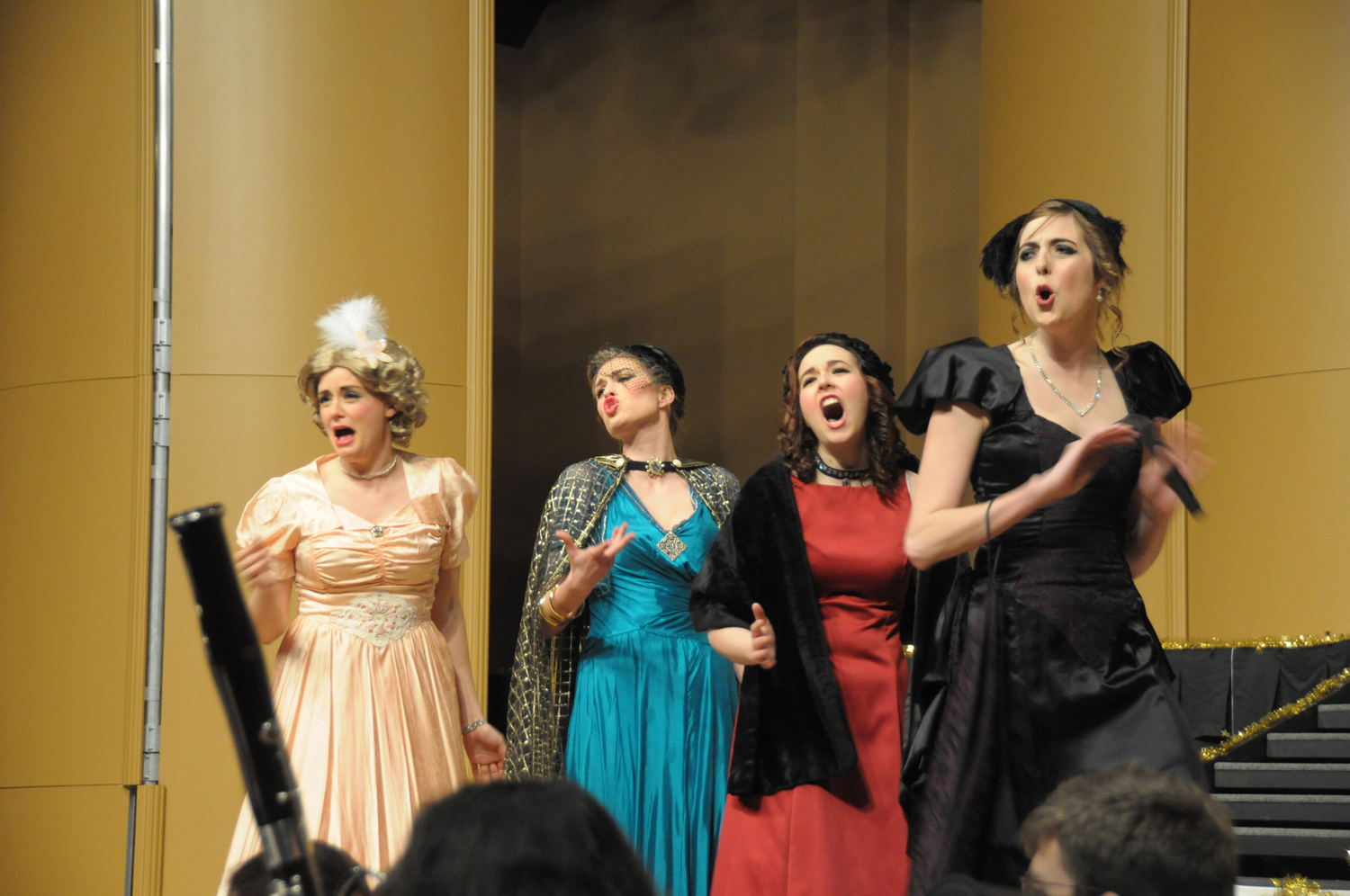
To outsiders of the world of opera, the only opera role many have been conditioned to recognize may be the fat, blonde viking lady with the horned helmet and spear.
A satirical opera showcasing not one but four stereotypical soprano divas, Edwin Penhorwood’s Too Many Sopranos depicts the hilariously riotous competition between these divas for the last place in the heavenly choir.
With stage and vocal music director Kathryn Lehmann, orchestral conductor Steven Zopfi and double casts, Too Many Sopranos hit many high notes while hysterically exposing opera clichés that had Wagner aficionados and, well, everyone else doubling up in their seats.
Amy Jones (Miss Titmouse) remarked that because “there were all levels of mocking occurring, everyone [got] something out of Too Many Sopranos… I think what people really enjoyed about this opera was that a wider audience could connect to the premise because it was more comical and lighthearted than opera usually is.”
Each diva’s character fulfilled a traditional lead female operatic role. Miss Titmouse is based on the coloratura-soprano: she sings everything as high, loud and fast as she can, and rarely lines up with the accompaniment because she can’t count. The character of Madame Pompous is derived from Wagner’s infamous Brumhilde, who is quick to sing about really combative subjects. Dame Doleful is the mezzo-soprano who usually sings slow, melodramatic pieces about unrequited love. Finally, there is the sweet Just Jeanette, who is actually smarter than the rest but less transparent—and always gets the boy.
This becomes a goal for the divas when they realize that there are not enough men to accompany them in the heavenly choir, and that they must travel to hell and perform a selfless deed in order to bring some deeper voices back with them.
The two largest male roles are the narrator, Saint Peter, and his right-hand angel Gabriel. Although a silent role, the Angel Gabriel remains a key member of the group—he has a hand in everything and provides much of the comic relief throughout.
The male characters in hell include the tenor role of the lady-killer Enrico Carouser, whose matador-wear only bolsters his status as woman-eater; the Stage Director, an old man who is dying to talk and so boring he puts the “cast” to sleep (achieving this absolutely hilariously); and Nelson Dudley, a tenor role who falls in love with Just Jeanette. Floating around the rest of them is the Sandman, an angelic soprano who attempts to help the two lovers into heaven.
I will readily confess that many of the larger references which would not go unnoticed by the opera community did not exactly reach out to me. Yet they seemed to be thoroughly enjoyable for everyone involved. The casts were able to make opera fun. As only Jones could deadpan, “It’s funny because we were mocking ourselves the entire time. Nothing dramatic happens, no one dies…we’re all already dead.”
